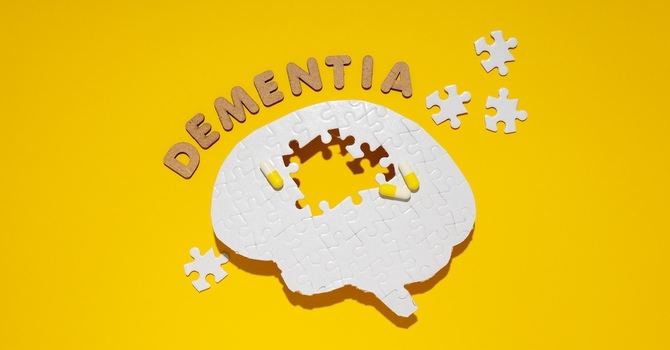
As our parents age, the homes they’ve lived in for decades can become too large or difficult to maintain. However, convincing them to downsize isn’t always easy. For many seniors, their home represents years of memories and independence, so the thought of moving can be daunting. As adult children, we often find ourselves in the role of advocate, encouraging our parents to make this life transition—but how do you know when it’s time?
Here are five signs that your parents may be ready to downsize and how to approach this sensitive conversation.
1. The Home Has Become Difficult to Maintain
If your parents have stopped keeping up with routine tasks like mowing the lawn, shoveling snow, or even cleaning rooms they no longer use, it might be a sign that their home has become more of a burden than a comfort. A large house with multiple floors and extensive yard work can become overwhelming, especially if mobility is an issue or if health conditions make physical tasks difficult. Downsizing to a smaller, more manageable living space can reduce the pressure on your parents, allowing them to focus on enjoying their time rather than maintaining a property that no longer suits their needs.
How to approach it: Start by talking about the benefits of simplifying their living situation, like saving time, energy, and money on home maintenance. Frame it as a positive step toward making their lives easier and more enjoyable, rather than as a loss of independence.
2. Safety Hazards in the Home
As your parents age, certain aspects of their home may become unsafe. Staircases, slippery floors, and bathrooms without grab bars can pose real risks to seniors, especially if they have mobility issues or are prone to falls. If you notice signs of difficulty moving around the house or concerns about their safety, it may be time to talk about moving to a home that’s better suited to their needs, such as a one-story home or an apartment in a senior-friendly community.
How to approach it: Discuss these concerns in terms of safety and long-term comfort. Emphasize that moving to a safer home can help them stay independent longer by reducing the chances of accidents or injuries.
3. Rooms Are Going Unused
If your parents are only using a small part of their home—like the kitchen, bedroom, and one bathroom—while the rest of the house sits empty, it’s a sign that their living space is too large for their current lifestyle. Unused rooms can accumulate clutter and dust, making cleaning more difficult and unnecessary. Downsizing to a more efficient space that fits their needs can help them live more comfortably and remove the burden of caring for unused areas.
How to approach it: Gently point out the parts of the house that are no longer being used and suggest that a smaller, cozier space might be a better fit. Highlight how they can still have the same level of comfort without the hassle of managing extra rooms.
4. Clutter Is Becoming Overwhelming
Over time, it’s common for seniors to accumulate belongings—some of which they no longer need. If you notice that your parents’ home is becoming cluttered with items they rarely use or if organizing seems to be an increasingly difficult task, this could be a sign that downsizing is needed. Living in a cluttered environment can increase stress and make daily tasks more challenging. A downsized home provides an opportunity to declutter, streamline their belongings, and create a more organized, peaceful living space.
How to approach it: Focus on the emotional and physical benefits of decluttering. Let your parents know that by downsizing, they can keep the items that mean the most to them while freeing themselves from the stress of managing excess belongings.
5. Your Parents Are Feeling Socially Isolated
If your parents are living in a home far from friends, family, or community resources, they may be experiencing social isolation. Large homes in the suburbs or rural areas may have been perfect for raising a family, but as your parents age, proximity to social activities, healthcare, and family support becomes increasingly important. Downsizing to a home in a community setting or closer to loved ones can help combat loneliness and provide them with easier access to services they need.
How to approach it: Frame the conversation around the positive aspects of being closer to family or moving into a community where they can build new social connections. Let them know that this move could enhance their quality of life by reducing feelings of isolation.
How to Start the Conversation
Talking to your parents about downsizing can feel daunting, but approaching the conversation with care and empathy can make a world of difference. Here are a few tips for starting the discussion:
Start Early: It’s always better to have this conversation sooner rather than later, so your parents don’t feel rushed or overwhelmed. Begin with casual, open-ended questions about how they feel living in their current home and whether they’ve thought about the future.
Focus on the Positive: Emphasize the benefits of downsizing, such as reducing home maintenance, cutting costs, and having more time for the things they enjoy. Present it as an opportunity for them to maintain independence and improve their quality of life.
Involve Them in the Process: Make sure they feel in control of the decision. Encourage them to tour potential new living spaces and talk about their preferences. Avoid framing the conversation as something that must happen; instead, highlight it as a choice that can improve their future.
Offer Professional Support: Downsizing can be an emotionally and physically draining process. Offering the help of a senior move manager can alleviate much of the stress. These professionals specialize in guiding seniors through the process of sorting, packing, and moving, making the transition smoother for everyone involved. This allows you to provide emotional support without being overwhelmed by the logistics.
By recognizing these signs and approaching the conversation with sensitivity, you can help your parents make the transition to a more comfortable, manageable home. Downsizing doesn’t have to be a stressful experience—with the right support, it can be a positive step toward a new chapter in life.



